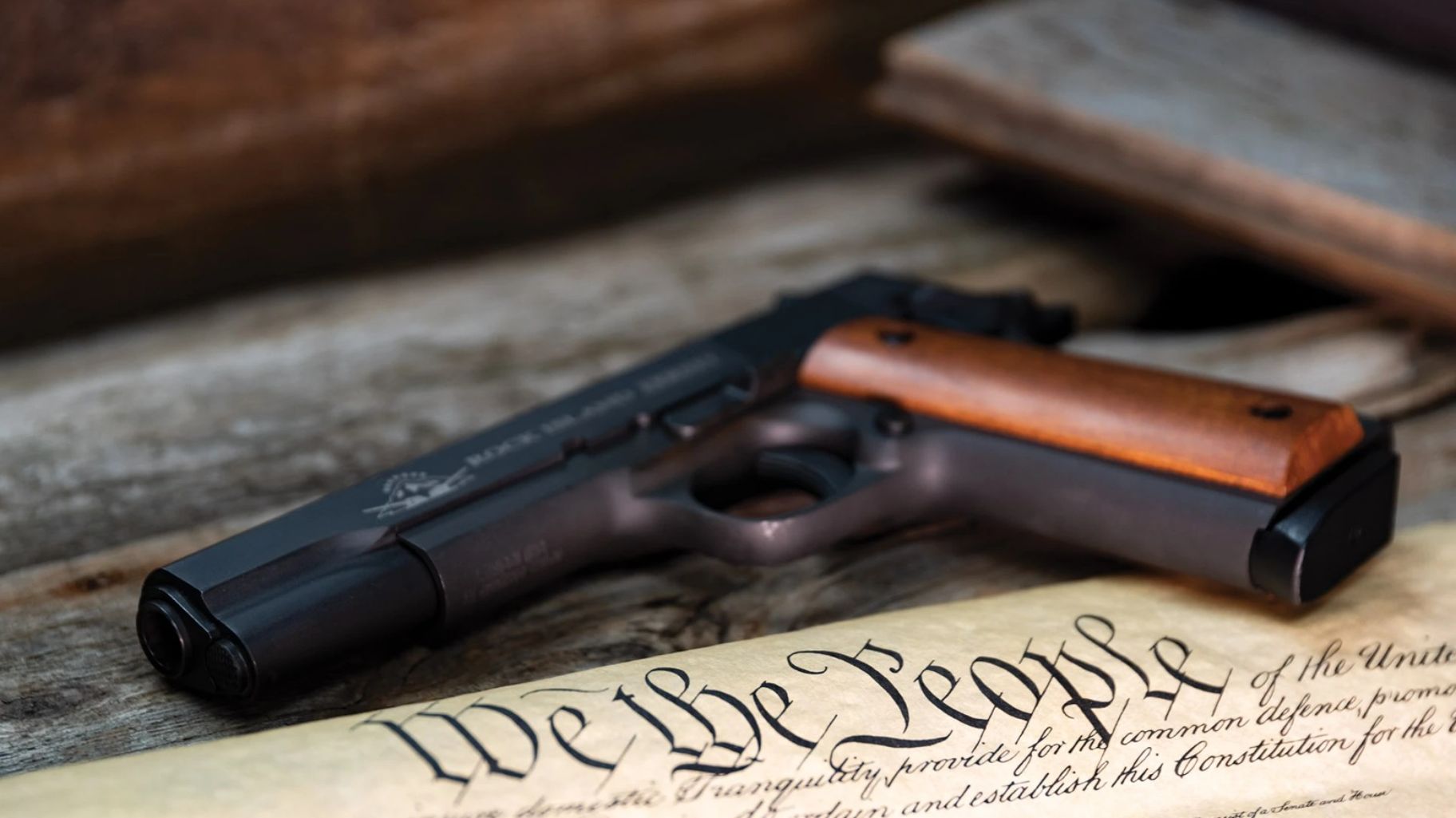Nebraska’s firearm regulations have evolved over time to address public safety while respecting the rights of gun owners. The legal framework is designed to ensure that firearm transactions, whether through dealers or private sales, adhere to established standards to prevent unauthorized possession and use.
Historical Context
The historical context of Nebraska’s firearm regulations reflects a balance between Second Amendment rights and public safety concerns. Over the years, Nebraska has implemented various laws addressing firearm transfers, ownership, and usage, influenced by both federal legislation and state-specific needs.
Legislative Framework
Nebraska’s legislative framework incorporates both federal mandates and state legislation. Federal laws, including the Gun Control Act of 1968 and the Brady Handgun Violence Prevention Act, set the baseline for firearm regulations. State laws, on the other hand, introduce additional requirements tailored to Nebraska’s specific needs and conditions.
Requirements for Firearm Transfers
Firearm transfers in Nebraska require adherence to both federal and state laws. This ensures that all transactions are legal and that buyers and sellers meet the necessary criteria.
Federal vs. State Laws
Federal laws serve as the foundation for firearm transfers across all states, including Nebraska. These laws enforce baseline requirements such as background checks and record-keeping for licensed dealers. However, state laws in Nebraska introduce more specific regulations that must also be followed.
Nebraska State Transfer Laws
Nebraska state transfer laws stipulate that all firearm transactions, including private sales, adhere to specific requirements. For instance, buyers must have a valid purchase permit or a concealed handgun permit when acquiring handguns.
Background Checks for Firearm Transfers
Background checks are a critical component of the firearm transfer process, ensuring that individuals prohibited from owning firearms do not acquire them.
Federal Mandates
Federal mandates require licensed firearm dealers to conduct background checks through the National Instant Criminal Background Check System (NICS) before completing a sale. This applies to most firearm transactions, ensuring compliance with federal law.
State-Specific Procedures
Nebraska enhances these federal requirements with state-specific procedures. All handgun purchases require a permit, which acts as a de facto background check. This involves the Nebraska State Patrol, which reviews applications and screens individuals for eligibility.
Role of the Nebraska State Patrol
The Nebraska State Patrol plays a crucial role in overseeing firearm transfers. They review permit applications, conduct background checks, and maintain records of firearm transactions to ensure compliance with state laws.
Private Gun Sales Regulations
Private gun sales in Nebraska are regulated to ensure they meet the same safety standards as dealer transactions.
Requirements for Private Sellers
Private sellers in Nebraska must ensure that the buyer has a valid purchase permit or a concealed handgun permit. This verifies that the buyer is legally eligible to own a firearm.
Obligations of Private Buyers
Private buyers must obtain the necessary permits before purchasing a firearm. They must present these permits to the seller as part of the transaction process.
Documentation and Record-Keeping
Both sellers and buyers are encouraged to maintain records of private gun sales. This includes documentation of the buyer’s eligibility, which can be crucial in legal disputes or compliance checks.
Purchase Permits and Eligibility
Nebraska requires individuals to obtain a purchase permit before acquiring a handgun, ensuring that only eligible individuals can buy firearms.
General Eligibility Requirements
Generally, applicants must be at least 21 years old, free from felony convictions, and not subject to restraining orders or mental health adjudications that would prohibit firearm ownership.
Process for Obtaining a Purchase Permit
The process for obtaining a purchase permit involves application, background checks, and approval from the Nebraska State Patrol. This ensures that all candidates meet the eligibility criteria.
Application Procedure
Applicants must fill out the necessary forms and submit them to the local law enforcement agency or the Nebraska State Patrol. The forms are then reviewed, and background checks are conducted.
Permit Validity and Renewal
Purchase permits in Nebraska are valid for a specific period, often three years. Renewals require a fresh application and background check to ensure continued eligibility.
Gun Show and Dealer Regulations
Gun shows and licensed dealers in Nebraska must adhere to stringent regulations to ensure all firearm transactions are lawful.
Requirements for Firearm Dealers
Licensed firearm dealers in Nebraska must conduct background checks, maintain transaction records, and adhere to all federal and state regulations. Dealers play a key role in ensuring that only eligible individuals acquire firearms.
Gun Show Sales
Gun show sales must comply with the same regulations as those conducted by licensed dealers. This includes background checks and verifying the eligibility of buyers, addressing the so-called “gun show loophole.”
Loopholes and Controversies
Despite federal and state regulations, the “gun show loophole” refers to the private sales that might occur at gun shows without the stringent checks dealers perform. Nebraska has implemented measures to mitigate this, but it remains a point of contention among lawmakers and advocacy groups.
Role of Federal Firearm License (FFL) Holders
FFL holders are crucial in the lawful sale and transfer of firearms. They must comply with extensive regulations to maintain their licenses and conduct lawful transactions.
Specific Considerations for Concealed Carry
Nebraska has specific regulations for carrying concealed handguns, governed by the Concealed Handgun Permit Act.
Concealed Handgun Permit Act
The Concealed Handgun Permit Act outlines the requirements and eligibility for obtaining a permit to carry a concealed handgun in Nebraska. It ensures that only qualified individuals can carry concealed firearms.
Eligibility and Application Process
To obtain a concealed carry permit, applicants must meet stringent requirements, including age restrictions, background checks, and completion of a firearms safety course. These steps ensure that permit holders are knowledgeable and responsible.
Interstate Transportation of Firearms
Nebraska’s regulations also address the interstate transportation of firearms, ensuring that individuals carrying firearms into or out of the state comply with both state and federal laws.
Enforcement and Compliance
Ensuring compliance with firearm regulations involves multiple law enforcement agencies and stringent penalties for violations.
Role of Nebraska Law Enforcement Agencies
Nebraska’s law enforcement agencies, including the Nebraska State Patrol, play a significant role in enforcing firearm regulations. They conduct background checks, issue permits, and oversee compliance with state laws.
Penalties for Non-Compliance
Failure to comply with Nebraska’s firearm regulations can result in severe penalties, including fines and legal consequences. Individuals found violating these laws may face criminal charges and other sanctions.
Fines and Legal Consequences
Penalties for non-compliance can range from monetary fines to imprisonment, depending on the severity of the violation. These consequences underscore the importance of adhering to firearm laws in Nebraska.
Reporting and Tracking
Nebraska has implemented systems for reporting and tracking firearm transactions to ensure all transfers are documented and lawful. This helps prevent illegal firearm transfer and use.
Advocacy and Opposition
The topic of firearm regulation in Nebraska sees active involvement from both advocacy groups and opponents.
Gun Rights Advocacy Groups in Nebraska
Gun rights advocacy groups argue for less restrictive gun laws, emphasizing the Second Amendment rights of Nebraska residents. These groups often lobby for legislative changes and provide education on lawful firearm ownership.
Gun Control Activists and Their Influence
Conversely, gun control activists push for stricter regulations to enhance public safety and reduce gun violence. Their efforts often focus on closing loopholes and ensuring comprehensive background checks for all firearm transactions.
Recent Legislative Proposals and Changes
Recent legislative proposals in Nebraska reflect the ongoing debate between gun rights advocates and gun control supporters. Lawmakers continue to evaluate and update firearm regulations to balance rights and safety.




